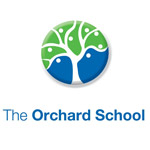Curriculum Overview
You can download our Education Scheme using the button below.
Curriculum Overview
The Orchard School is for pupils ranging from Key Stage 2 to Key Stage 4. All our pupils exhibit a range of complex learning needs, communication difficulties and social, emotional and mental health difficulties. Students are placed from a wide range of Local Authorities and all have an Education, Health and Care Plan (EHCP).
The Orchard School offers a learning environment at the heart of its wider community. We promote the care of our students - setting, respecting and expecting high standards in all aspects of school life. We aim to meet the needs of our students, preparing them for adult and working life in the 21st century. The vision for our school’s curriculum is to provide a fully inclusive curriculum that gives learners the opportunity to achieve their full potential by engineering a curriculum that best meets each learner’s diverse needs. Students access a broad and balanced education, based on the realities of modern life and delivered in a personalised learning environment.
At The Orchard School, we believe that the word ‘curriculum’ should be interpreted in its widest sense. The curriculum includes every planned learning opportunity the student’s experience as a member of the school, both learnt formally within a lesson or informally outside the classroom throughout the whole school day. It is these experiences that staff use to promote learning, personal growth and development. Experiences are structured to ensure that they have the greatest impact on the outcomes, attainment, progress and personal development of all our students.
Curriculum Aims
The curriculum must inspire and challenge all learners and prepare them for the future. The school’s aim is to continually develop a coherent curriculum that builds on students’ experiences in earlier life and helps them to become successful learners, confident individuals and responsible citizens with a fundamental understanding of core British Values including democracy, rule of law, individual liberty, mutual respect and tolerance of those with different faiths and beliefs.
The curriculum must help students to:
- Re-engage with learning through a flexible curriculum approach which encourages a joy for learning.
- Achieve high standards and make holistically good or outstanding progress.
- Enable those not achieving expectation to narrow the gap and meet chronological age expectations and/or personalised targets.
- Enter public examinations, if appropriate, when they are ready for them.
- Utilise high quality personal, learning and thinking skills and become independent learners.
- Utilise high-quality functional skills, including key literacy, numeracy and computing skills.
- Students to be challenged and stretched to achieve their potential.
- Enjoy and be committed to learning, to the age of 16 and beyond.
- Value their learning outside of the curriculum.
- Relate to the taught curriculum.
Curriculum Outcome
Our school’s curriculum will:
- Fulfil all statutory requirements
- Be based on National Curriculum definitions of subject breadth and progression wherever possible.
- Lead to qualifications that are useful for both employers and higher education.
- Enable students to build enhanced self-esteem and confidence in learning.
- Meet the needs of students of all abilities.
- Be delivered in a supportive, learning-focused environment, built on nurturing positive relationships, enabling all to feel safe and thrive.
- Provide equal access for all students to a full range of learning experiences, beyond statutory guidelines.
- Prepare students to make informed and appropriate choices at points of transition.
- Help students develop lively, enquiring minds, an ability to question and argue rationally and an ability to apply themselves to tasks and physical skills.
- Include a range of vital characteristics- breadth, balance, relevance, differentiation, progression, continuity and coherence.
- Ensure continuity and progression within the school and between phases of education, increasing students’ choice during their school career.
- Foster teaching styles which offer and encourage a variety of relevant learning opportunities.
- Help students to use language and number effectively.
- Help students develop personal moral values, respect for religious values and tolerance of other races’ beliefs and ways of life.
- Help students understand the world in which they live.
- Meet the social, emotional and behavioural needs of our students.

